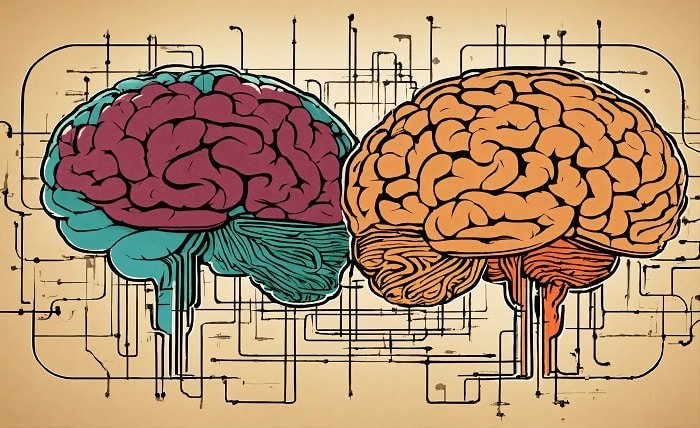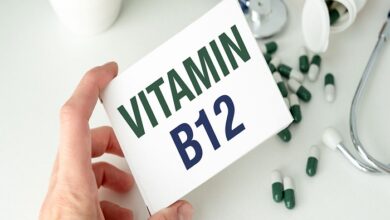Why Dual Diagnosis Treatment Centers Are Key to Recovery

Questions Answered in This Article:
- What Is a Dual Diagnosis?
- What Are Dual Diagnosis Treatment Centers?
- What Causes Dual Diagnosis?
- How Is Dual Diagnosis Treated?
- How to Choose the Best Dual Diagnosis Treatment Center
When someone struggles with both a mental health disorder and a substance use disorder, they’re dealing with a dual diagnosis. This is more common than many realize, and it’s often more complex to manage. Dual diagnosis involves the overlap of addiction and mental health, which requires specialized care.
That’s why treatment at dual diagnosis treatment centers is so important. These centers provide integrated programs that address both issues at once, offering the best chance for lasting recovery.
What Is a Dual Diagnosis?
A dual diagnosis—sometimes called a co-occurring disorder—refers to having both a mental health condition and a substance use disorder at the same time. This combination can make each condition worse and harder to treat if not addressed together.
For example, someone with untreated depression may turn to alcohol to cope. Over time, the alcohol use can deepen their depression. In this way, both conditions fuel each other. That’s why treatment needs to be integrated.
What Are Dual Diagnosis Treatment Centers?
Treatment centers for dual diagnosis are designed to address both mental health and substance use disorders at the same time, offering integrated care that helps prevent relapse.
Unlike traditional rehab centers, these centers provide comprehensive mental health services,
including treatment for anxiety, depression, PTSD, and bipolar disorder, alongside addiction care. When searching for treatment centers for dual diagnosis in Arizona, choose a program that includes psychiatric support, medical detox, therapy, and long-term care under one roof.
Common Symptoms of Dual Diagnosis
Recognizing a dual diagnosis can be tricky because symptoms of mental illness and substance abuse often overlap. Here are some signs to watch for:
- Intense mood swings or emotional instability
- Withdrawal symptoms like anxiety, sweating, or agitation
- Using alcohol or drugs to self-medicate mental health symptoms
- Trouble keeping a job, maintaining relationships, or following through on responsibilities
- Sudden changes in behavior, motivation, or energy
- A history of relapse despite previous addiction treatment
Each person is different, but if someone shows signs of both a mental health disorder and a substance use disorder, a comprehensive evaluation at a diagnosis treatment center is the best next step.
What Causes Dual Diagnosis?
There’s no single cause of dual diagnosis. Most people develop these conditions due to a mix of factors:
- Genetics: Family history of mental health conditions or addiction can raise risk
- Trauma: Physical, emotional, or sexual trauma can lead to both disorders
- Brain chemistry: Imbalances in brain chemicals may increase susceptibility
- Early drug or alcohol use: Starting substance use young can impact brain development
- Environmental stress: Poverty, abuse, or lack of support can contribute
Understanding what causes dual diagnosis helps providers develop a more personalized and effective treatment plan.
How Is Dual Diagnosis Treated?
Effective treatment for dual diagnosis must address both conditions together. A quality treatment program will typically include:
- Medical detox to manage withdrawal symptoms safely
- Psychiatric care to diagnose and treat mental illness
- Individual therapy (like CBT or DBT) to explore the root causes of behavior
- Group counseling and support groups for connection and accountability
- Medication management if needed for depression, anxiety, or bipolar disorder
- Family therapy to rebuild trust and communication
- Aftercare planning for continued support after treatment
These services come together to create a well-rounded treatment program that supports long-term recovery.
Types of Therapy Used in Dual Diagnosis Treatment
Behavioral therapies are a core part of dual diagnosis treatment. Some commonly used methods include:
- Cognitive Behavioral Therapy (CBT): Helps clients change negative thought patterns
- Dialectical Behavior Therapy (DBT): Useful for emotional regulation and distress tolerance
- Motivational Interviewing: Helps build motivation for recovery
- Trauma-Informed Therapy: Addresses underlying trauma contributing to addiction or mental illness
These therapies are often used in combination to meet individual needs. The goal is not just to stop using alcohol or drugs, but to build a life where recovery is sustainable.
Why Dual Diagnosis Is More Challenging to Treat
People with a dual diagnosis often have more severe symptoms and a higher risk of relapse. That’s why finding the right care is so important. Without treating the mental illness, substance abuse may return. Without addressing addiction, mental health symptoms often worsen.
Additionally, the stigma around mental illness or addiction can make it harder for people to reach out for help. But recovery is possible—with the right support and a customized treatment plan.
How to Choose the Best Dual Diagnosis Treatment Center
When researching dual diagnosis treatment centers near me, consider the following:
- Do they offer on-site psychiatric care?
- Are their staff trained in treating co-occurring disorders?
- Do they provide both detox and long-term support?
- Are treatment plans individualized?
- Do they offer family involvement or continuing care?
In Arizona, finding specialized dual diagnosis treatment centers with experience in complex cases is key. Look for programs that treat addiction as both a medical and psychological condition.
Dual Diagnosis Treatment Centers in Arizona
If you’re located in Arizona or seeking care here, you’ll find a growing number of facilities that specialize in dual diagnosis. These centers provide evidence-based care for people facing overlapping challenges with substance abuse and mental health conditions.
Whether you’re struggling with alcohol addiction, prescription drugs, or illicit substances, and also dealing with anxiety, depression, or trauma—getting help from a trusted Arizona-based center can make all the difference.
Break Free from Dual Diagnosis—Contact Us
Living with a dual diagnosis can be overwhelming—but with the right care, recovery is possible. At The Hope House, we treat both mental health and substance use disorders with compassionate, personalized support.
As one of the leading dual diagnosis treatment centers in Arizona, we’re here to help you take the first step. Call us at (480) 448-6139 or email contact@thehopehouse.com to start your journey toward lasting healing.




